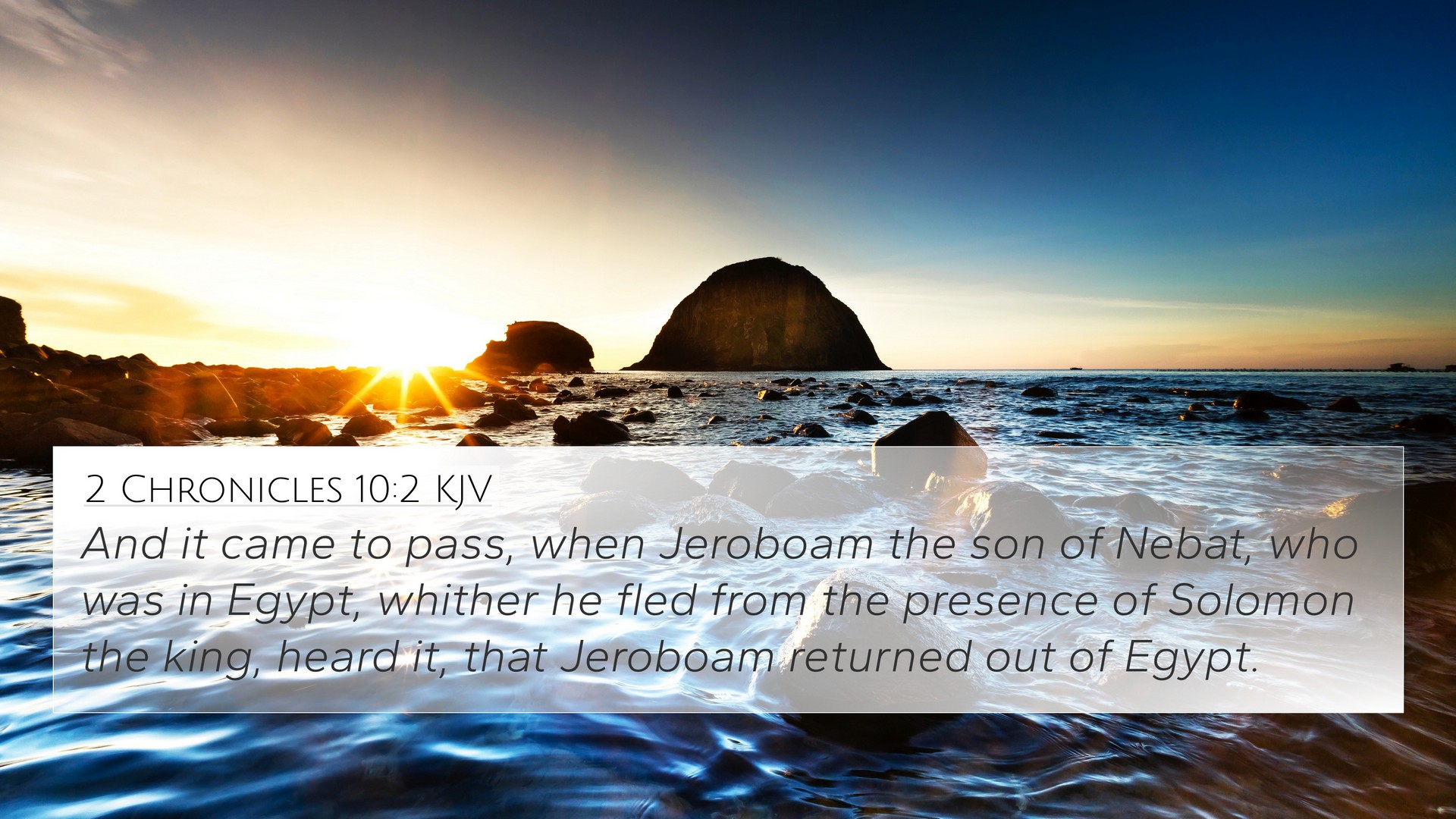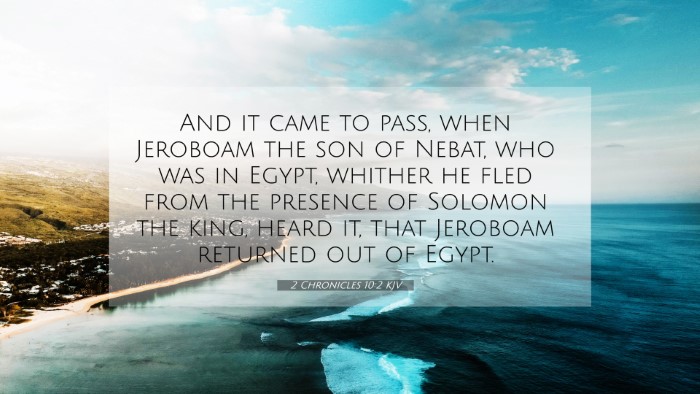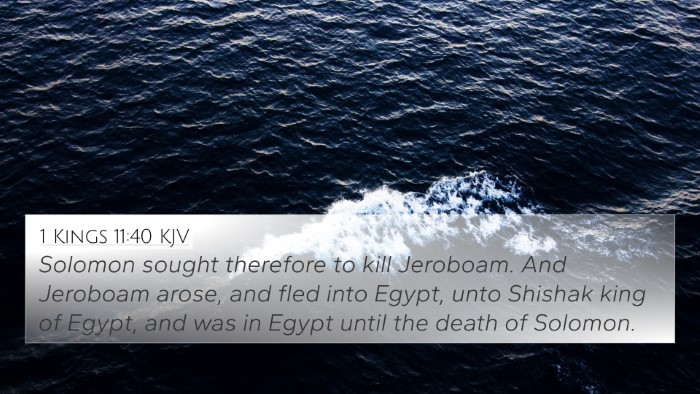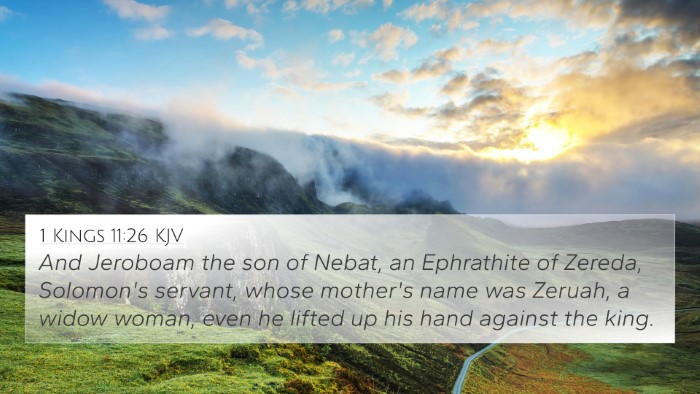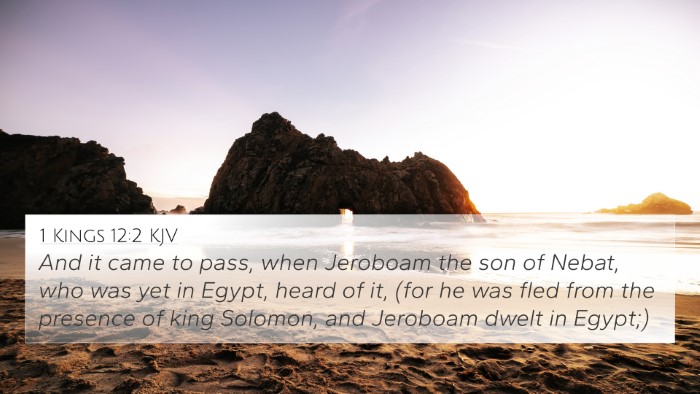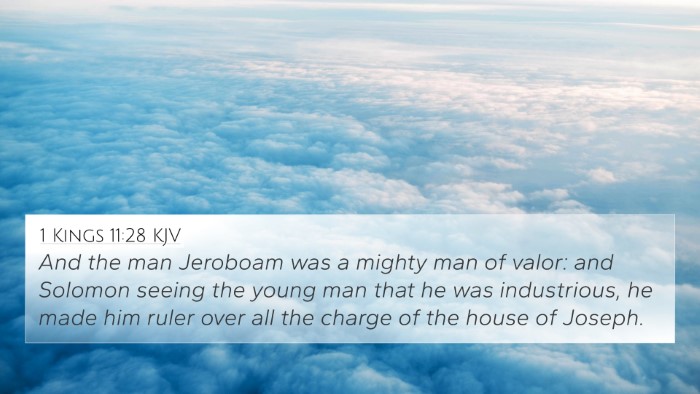Understanding 2 Chronicles 10:2
2 Chronicles 10:2 states: "And it came to pass, when Jeroboam the son of Nebat heard it, that he returned out of Egypt; for he was yet in Egypt." This verse introduces a pivotal moment in the transition of leadership from Solomon to Rehoboam, emphasizing the significance of Jeroboam's return in the context of Israel’s impending division.
Contextual Overview
This verse occurs shortly after King Solomon's reign and sets the stage for the impending conflict between the northern tribes of Israel and the southern kingdom of Judah. Jeroboam, who had fled to Egypt due to fear for his life, is now portrayed as a key figure in the narrative of Israel's schism.
Interpretative Insights
Various commentaries shed light on the implications of Jeroboam's return:
-
Matthew Henry:
Henry highlights the sovereignty of God in orchestrating events, portraying Jeroboam's return as God's providential act steering the future of Israel. This act indicates that God was aligning leadership according to His plan.
-
Albert Barnes:
Barnes emphasizes Jeroboam's role not just as a physical leader but as a symbol of rebellion against Rehoboam and the established order. This rebellion mirrors ancient Israel's cycles of turning away from God and seeking their own paths.
-
Adam Clarke:
Clarke underlines the political dimensions of Jeroboam’s return, suggesting it was not merely a personal journey but a strategic move to assert authority over the disgruntled Israelites who sought relief from Rehoboam’s perceived heavy yoke.
Thematic Connections
This passage serves as a bridge for numerous Bible verse cross-references that explore themes of leadership, rebellion, and divine intervention. Here are some key links:
- 1 Kings 11:29-39: Jeroboam’s selection as a leader while still in Solomon's reign.
- 1 Kings 12:1-19: The events that follow Rehoboam’s ascension and their immediate impact on Israel.
- 2 Samuel 5:1-5: The background of Israel's monarchy and earlier divisions under David and Solomon.
- Jeremiah 3:6-10: A prophetic insight into Israel's unfaithfulness and its consequences.
- Isaiah 9:21: The division of the tribes and their resulting hierarchy of leaders.
- Hosea 8:4: Israel's kings were appointed without consulting God, leading to chaos.
- Ezekiel 37:22: A vision of unification amongst divided nations.
- Matthew 12:25: Jesus cautions against a divided kingdom, echoing Israel’s ancient schism in a New Testament context.
- Romans 13:1: A broader theological perspective on the establishment of rulers and their divine ordination.
Lessons and Applications
2 Chronicles 10:2 invites readers to reflect on several significant insights:
-
Understanding Leadership:
Leadership should be guided by divine wisdom rather than human ambition. Jeroboam’s rise illustrates the complexities and challenges of human authority.
-
The Danger of Rebellion:
Rebellions often stem from legitimate grievances but can lead to further division and strife. The story of Jeroboam serves as a cautionary tale.
-
God’s Sovereignty:
This account emphasizes that God's plans prevail despite human chaos. Even in moments of apparent disruption, God’s hand is guiding events toward His purposes.
Further Study and Cross-Referencing Tools
For those eager to explore the connections between Bible verses further, consider the following tools for Bible cross-referencing:
- Bible concordances that list words and their occurrences.
- Cross-reference Bible study guides which provide structured study paths.
- Online and print resources that detail comprehensive Bible chain references.
Conclusion
In conclusion, the verse 2 Chronicles 10:2 is more than a narrative detail; it encapsulates profound themes that resonate throughout Scripture. The insights drawn from this text, when woven together with related passages, encourage deeper understanding and appreciation of the intricate mosaic that is the biblical narrative.
Exploring More Bible Connections
As you further delve into Scripture, remain attentive to inter-Biblical dialogue and how verses relate to each other, be it through comprehensive Bible cross-reference materials or personal study. This interconnectedness is vital for grasping the full message and intent of the biblical authors.
